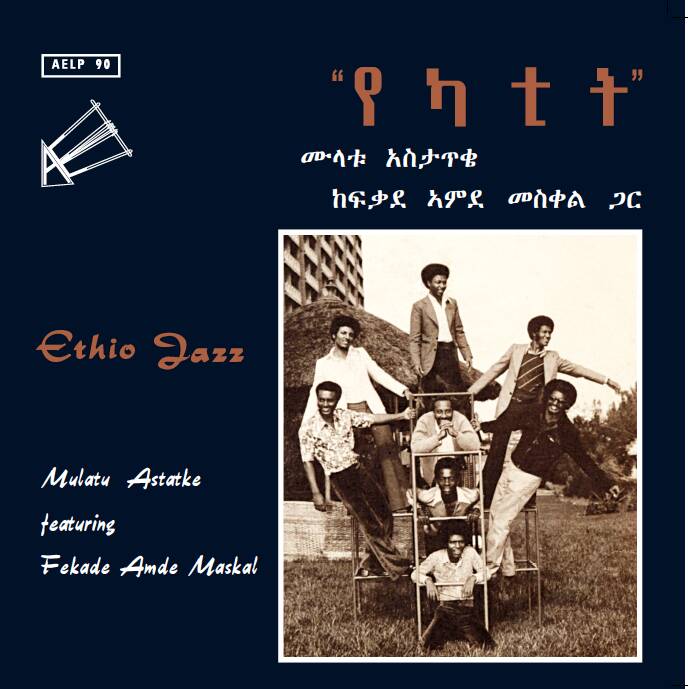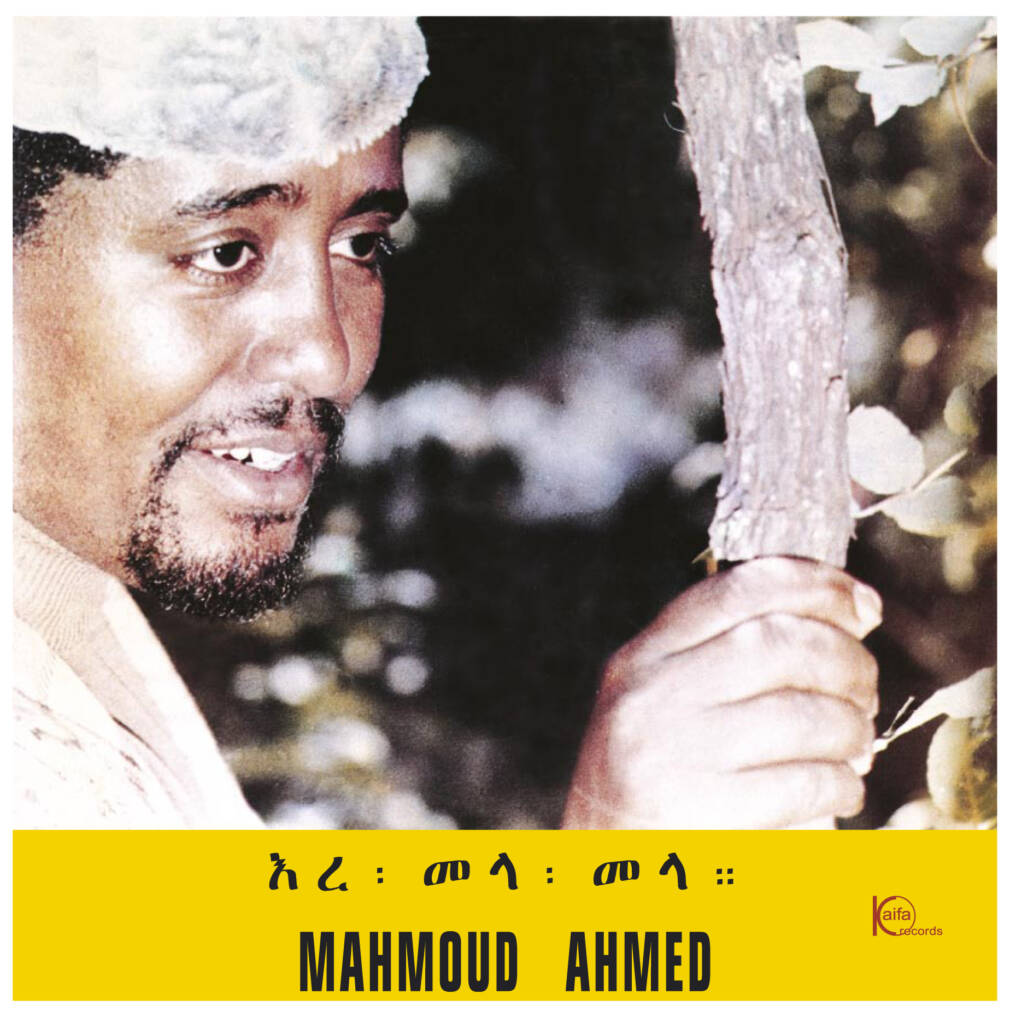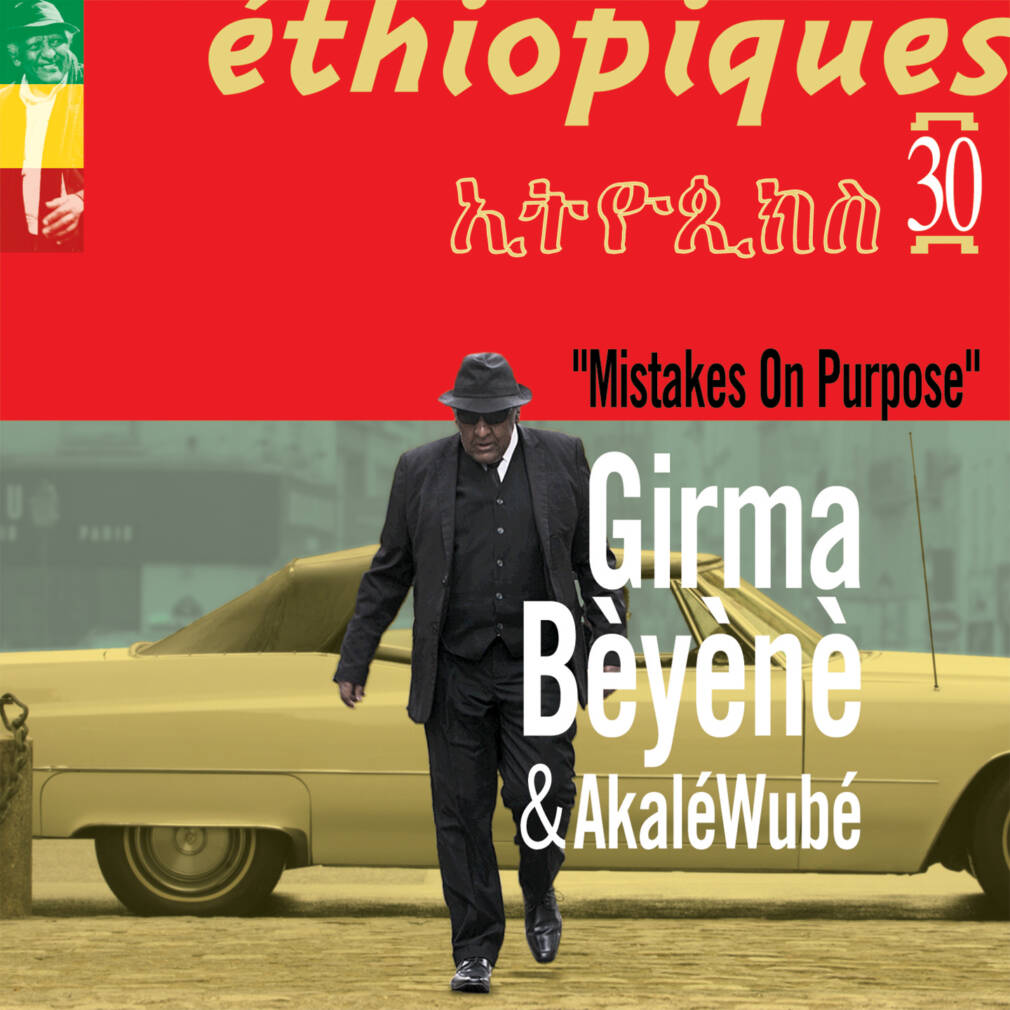Before going any further, I would like to point out that this makes for a tiny bit of self-promotion as it is Heavenly Sweetness that is releasing this catalog on vinyl in collaboration with Buda Musique. But the richness of the music is so crazy that it would be a shame not to talk about it here.
I envy you readers who now have the chance to discover these albums for the first time. Their beauty grabbed me from the first listen. These vinyls have been with me for many years. Thank you again David Jaloux and Arome production.
P.S: we are talking about reissues here because the original vinyls are extremely rare and worth a lot of money.
Mulatu Astatké – Ethio Jazz (Amha records) 1974
Though still active today, we’ll start with the leading artist of Ethiopian music in the 60s and 70s.It was Mulatu who invented (or at least popularized) Ethio jazz, the mixture of traditional Ethiopian music with American jazz and Latin music.
After studying music in London and the USA (at the prestigious Berklee college), and releasing two American albums, Mulatu returned to his native country to record with local musicians in sessions which produced several tracks including this fundamental “Ethio jazz” album for Ahma Eshete’s label.
The music recorded on this album is very unique as it contains purely Ethiopian harmonies, (reminiscent of “Oriental music”) married to more jazz or even funk arrangements/ orchestration.
The sound of this purely instrumental Ethio jazz is very singular, combining organs, pianos, fuzz guitars, contemporary modern sounds and more traditional brass themes with the participation of saxophonist Feqadu Amde-Mesquel.
It is the perfect music to transport spirit to distant countries.
Note that Mulatu’s albums are a little like the color-coded Beatles’ compilations: there is the “Blue” and the “Red.” Indeed, we find 6 tracks from Mulatu on the 10 that feature in the compilation Ethiopian Modern Instrumental Hits, released in 1972, which can almost be considered another album from the vibraphonist. Also, it is on this red album that we find one of Mulatu’s Hits, the famous “Yégellé Tezeta,” sampled by Nas & Damien Marley on “As we enter.”
Mahmoud Ahmed with the Ibex Band – Ere Mela Mela (Kaifa Records) 1975
On this album, we depart from Mulatu’s instrumentals and join the great voices of “Swinging Addis”: Mahmoud Ahmed, accompanied by his orchestra, the Ibex Band, which includes the Saxophonist Feqadu Amde-Mesquel.
What makes this so-called “modern Ethiopian music” (from the 70’s, in fact) so incredible is that this crazy production period only lasted a few years, basically from 1969 until the “Derg,” the military coup that overthrew Emperor Haile Selassie in 1974. It was young entrepreneurs like Ahma Eshete (who unfortunately passed away two months ago) who had the courage to defy the ban on recording music outside the official state label and the control of the emperor’s censorship authorities. Faced with the quality of the music and its popular success, the emperor eventually allowed for a modern Ethiopian music scene and for production to develop with the appearance of another label, Kaïfa records, created by Ali Abdella Kaifa. It is on this label that the magnificent Ere Mela Mela was released. Here, we really find the best of Ethiopian music, superb brass melodies, hypnotic grooves and the sublime voice of Mahmud twirling above.
Mahmud Ahmed’s early career is quite astonishing as he had very little education and ended up working as a handler at the Arizona club, one of the night bars in Addis Ababa where a house band used to play. One night, the singer didn’t show up and Mahmoud seized his chance by going on stage to perform the repertoire he had listened to every night. He never left the stage again and went on to become a professional international singer.
Girma Bèyènè & Akalé Wubé – Mistakes on Purpose – Éthiopiques 30 (Buda Musique) 2017
The work done at the end of the 90s by Francis Falceto and Gilles Fruchaux on the “Ethiopiques” series has made it possible to rediscover the richness of Ethiopian production from the 60s and 70s. The success of Jim Jarmusch’s “Broken Flowers” in 2005 also contributed to this.
The music has inspired many musicians around the world to play more or less modern Ethio-groove, sometimes in collaboration with legends like Mulatu with the Heliocentrics, Getatchew Mekuria with The Ex, or on new recordings by Hailu Mergia …
In France, this new wave of Ethiopian grooves has given birth, among others, to two exciting groups: Arat Kilo and Akalé Wubé. This latter group went to find a somewhat forgotten Ethiopian singer: Girma Béyéné. This meeting, under the artistic direction of Francis Falceto, got the privilege of becoming the 30th volume in the Ethiopian series.
It is the only volume composed of present-day music, and not a reissue of old recordings.
The singer, arranger and pianist Girma Bèyènè was one of the major figures of the golden age of Ethiopian music, one who curiously enough only ever recorded a few titles. On the other hand, he played on many sessions, and arranged more than eighty tracks. Despite his work and probably because of his American exile, he has been somewhat forgotten since then and this project alongside Akalé Wubé has allowed him to return to the forefront of the scene and to play around the world once again.
On this album, Akalé Wubé’s impeccable groove is put at Girma’s service for a resolutely modern tribute to the music of the 70’s. It marks a real artistic success and an ideal gateway to Ethiopian music, past, present or future.
A little anecdote to finish: In Akalé Wubé, we find the trumpet player Paul Bouclier and the drummer David Georgelet, musicians who play next to Florian Pellissier in the great Jazz-funk band, Cotonete.
The playlist on Deezer and Spotify is up to date, have a good listen and see you next week for more musical adventures.







